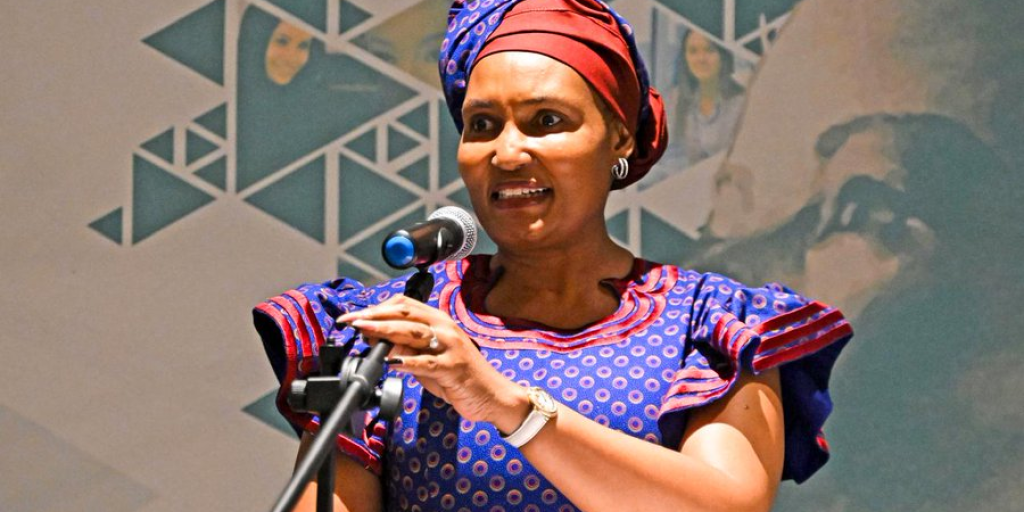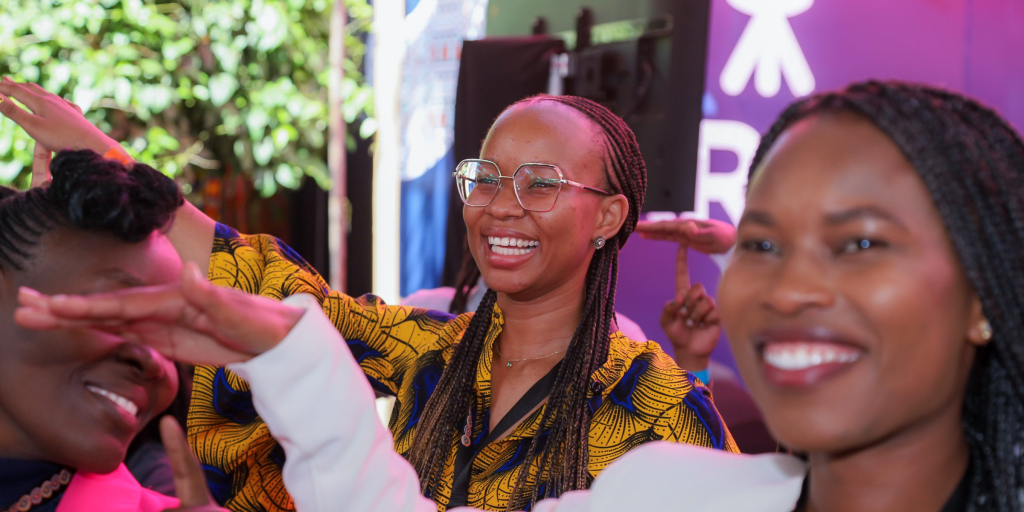Legal threats against journalists undermine our access to information
PICTURE: Thembi Simelane/X
Centre for Information Integrity in Africa
Thembi Simelane, the current Minister of Human Settlements and former Minister of Justice and Constitutional Development, recently sent a threatening lawyer’s letter to journalists Pauli Van Wyk (formerly of Daily Maverick) and Kyle Cowan of News24.
In the preceding months, Van Wyk and Cowan had published an investigative series detailing various luxury purchases made by Simelane while she was mayor of Polokwane. The value of these purchases ‘far eclipsed her income’ during that time, according to the journalists. (Listen to a podcast here.)
Simelane’s decision to threaten journalists with legal action presents a threat to information integrity in South Africa. The role of the media and its ability to freely impart information is supported by the right to freedom of expression, enshrined in Section 16 of the Bill of Rights.
It has also been supported in various judgments, such as Bosasa Operation (Pty) Ltd v Basson in 2012. The judgment read: ‘The essential and critical role of the media, which is more pronounced in our nascent democracy, founded on openness, where corruption has become cancerous, needs to be fostered rather than denuded.’
This statement underlines the fundamental importance of journalism in democratic South Africa. It highlights the necessity to support and protect the media.
Of course, democracy and the freedoms that accompany it, are the responsibility of the many, not the few, and require active participation and support to uphold. Simelane’s threat is, therefore, made further problematic as she has a responsibility for championing the Constitution, due to her role as a minister and Member of Parliament.
Simelane’s lawyer’s letter and the allegations made within the letter also bear all the hallmarks of a SLAPP (strategic litigation against public participation), or at the very least, a threat of a SLAPP. While there are various (contested) definitions, at its crux, a SLAPP typically involves the use of the legal system by a powerful entity against journalists, or other opposing voices, to deter current and future critical coverage.
While the traditional definition of a SLAPP focuses on cases that end up before a judge, Zeenat Emmamally argues that the threat of legal proceedings should fall under the SLAPP umbrella. Emmamally asserts that the threat of a legal challenge is designed to have the same impact, which is to deter current and future opposition.
SLAPPs typically utilise defamation or right to privacy laws as the foundation of the legal challenge. However, it is important to note that these laws exist to protect false accusations and other privacy infringements. In the context of SLAPPs they are typically used as vehicles to pursue a broader goal of suppressing critical coverage, as the goal of the lawsuit is not solely to receive a favourable judgement.
SLAPPs against South African journalists are not a new phenomenon, and provide a backdrop to analyse the threats made by Simelane.
A particularly recent example of a SLAPP that ended up before a judge was the legal challenge pursued by the Moti Group against the AmaBhungane Centre for Investigative Journalism. This case exemplifies how legal threats can be used to silence journalists, even when ultimately unsuccessful.
Following critical reportage about founder Zunaid Moti, the Group approached the court to implement a gag order against future coverage and to compel the journalists to return the reportedly leaked documents their coverage was based on.
The Moti Group were initially successful with their legal challenge, with a judge in the Gauteng High Court ordering amaBhungane to cease coverage and return the documents to the Moti Group. While amaBhungane successfully overturned the order on appeal around one month later, the initial order resulted in close to a month of being unable to work on the case combined with the costs of mounting a legal defence.
The Moti and amaBhungane case highlights the impact SLAPPs can have on the ability of investigative journalists to practice journalism. In this instance, investigative journalists, working off of reportedly leaked documents, and practising their right to free and open journalism, were barred from doing so due to a powerful individual’s use of the legal system.
Furthermore, regardless of the outcome of the legal challenge, it still generally requires the commitment of time and resources. Journalists are often taken away from doing journalism, and forced into assisting with the preparation of court documents.
Aside from the time taken away from their jobs, there are the legal fees to consider, which the publications are often forced to foot. This can be challenging for any publication to deal with, but for donor-funded or small community publications, this can mean the loss of critical finances required to keep the doors open
SLAPPs also provide a level of perceived credibility to the challenge, which offers an anchoring point for accompanying public relations and social media campaigns. These campaigns, as seen in the Moti case, typically involve multiple media appearances, through interviews and opinion pieces, promoting a favourable narrative and criticising the conduct of the journalists.
The social media campaigns tend to devolve into personal insults, allegations of racism and wrongdoing, threats of arrest and attempts to direct the social media masses to pile onto the journalists.
What this highlights is that the initial part of the SLAPP is often only the tip of the iceberg. SLAPPs are multi-faceted attacks on the media that seek to undermine a publication’s credibility and drain their resources (financially and time-wise).
They are an abuse of the legal system that force journalists into devoting precious time into their legal defences. This is time that could be spent uncovering the truth, or as amaBhungane puts it, ‘digging dung’ and ‘fertilising democracy’.
AmaBhungane’s tagline provides a great insight into the role of investigative journalists in South Africa. They spend significant amounts of time and resources on uncovering wrongdoing that undermines South Africa’s democratic processes. By exposing it, they help inform the population of the actions of those in power and allow people to be aware of actions that impact their democratic rights.
SLAPPs are the complete antithesis to this. They are designed to weaponise democratic processes, such as the right to a fair trial and freedom of expression, to serve the means of a powerful individual. They are not a legitimate attempt to protect one’s reputation, but an abuse of the legal system, often driven by a power imbalance.
Therefore, when ministers, like Simelane, threaten to take legal action because of investigations into alleged wrongdoing, it can directly impact our access to information. It sets a dangerous precedent that those in power can act with impunity and that any dissenting voice will be met with a lengthy legal challenge and all of the accompanying problems
While Van Wyk and Cowan work for publications which can likely afford to mount a legal defence on their behalf, not all journalists may be as fortunate. They may not always have the weight of a national publication behind them. And when they ‘step out of line’, the mere threat of a legal challenge may be enough to force them to back down.
If that situation arises, we are all worse off. Think of State Capture and the Gupta Leaks and many other ‘scandals’ in recent years. Those were all uncovered thanks to the tireless efforts of investigative journalists and brave whistleblowers who were able to uncover the truth in a legal system that is broadly supportive of journalism.
But if work like that is discouraged through the threat and burden of legal challenges and by voices meant to uphold our constitutional rights, then South Africa will be much worse off.
A free and open media, driven by strong investigative journalism, is vital for maintaining information integrity and upholding our democratic values, and SLAPPs pose a direct threat to these rights which we so often take for granted.
- Roodt recently completed his MA Journalism at Stellenbosch University focusing on the links between SLAPPs and disinformation campaigns, using the Moti and amaBhungane case as a case study
- This article was first published here




